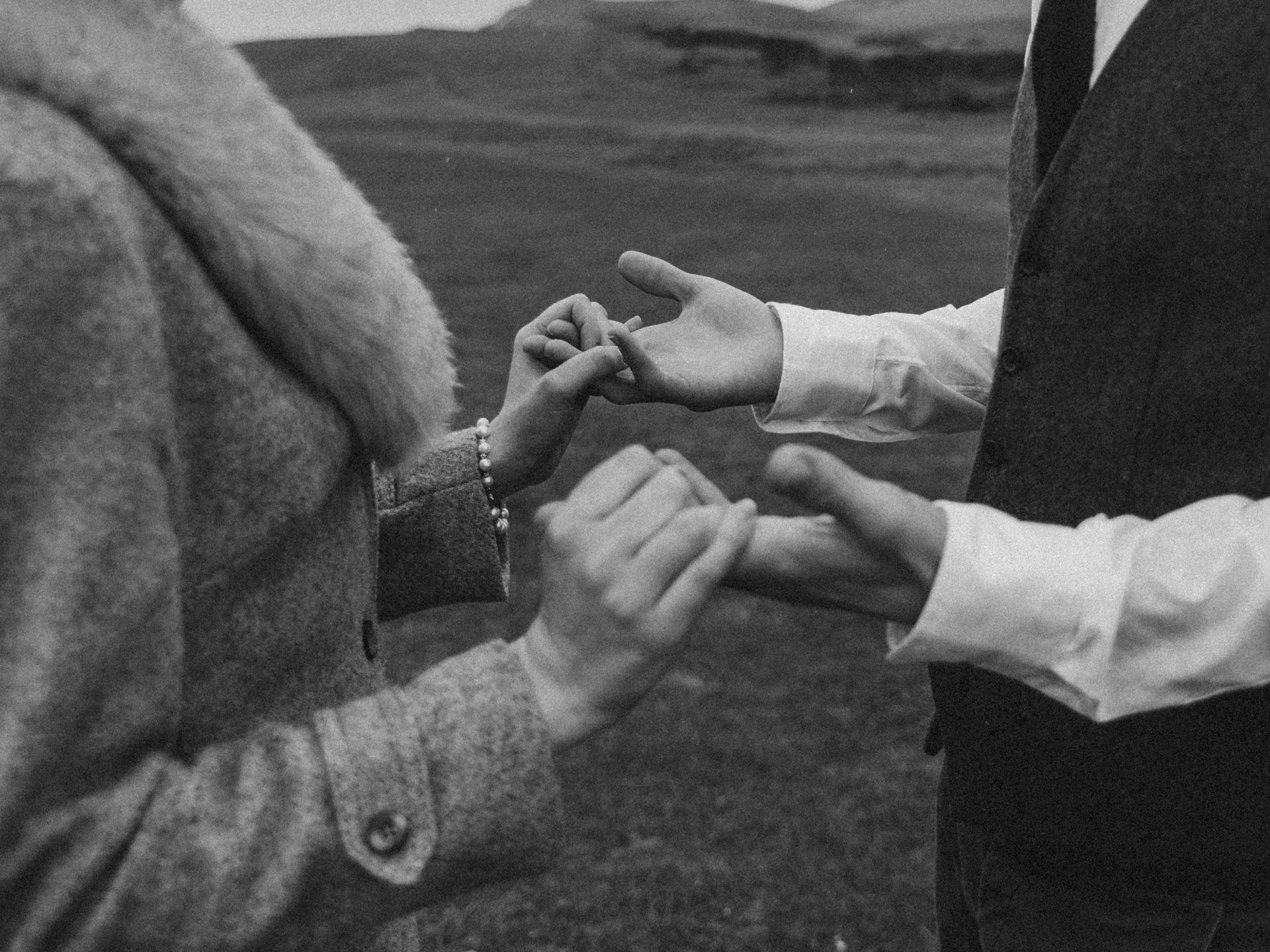What do you want to be known for
Alice Edge • October 27, 2020
Matthew 22:34-40

This little collection of verses here in Matthew are probably some of my most influencing verses in the Bible for me, and really have helped me navigate my faith through harder times and confusing times and deconstructing times. In all honesty, they have been the grounding that I needed as my life transitions from one season to the next to the next. But, as with most of these popular verses, I’ve heard it so many times and let it become my life motto without really stopping to read what’s happening and why Jesus said it. I think I’ve always had in my head that this passage was some warm and fuzzy feels teaching, almost like the Sermon on the Mount. I knew it was a bit controversial, but that was the extent. And then, I read the context.
Jesus had spent the morning travelling, and then ended up in the Temple teaching. This was something he did quite a lot, and there are a few examples of this recorded throughout the Gospels. Up until this point on this day, Jesus had taught the parable of the two sons, the parable of the veil farmers, and the parable of the great feast (if you want to check these out they begin in chapter 21 of Matthew, and each of these parables would have been incredibly confronting for the religious leaders, as they directly target their power and their hearts.
After Jesus finishes teaching the parable of the great feast, the Pharisees all huddle together and try to figure out a way to trap him and trick him, and begin asking him some difficult questions. Jesus answers these, so the Saducees try to catch him out, which doesn’t work either. The Pharisees have a final go, and bringing in someone within their group that is an expert in the law, they try to trick Jesus about the law, asking Jesus, “Which is the greatest commandment in the law of Moses?”
Once again, I think it’s important to know this context because, for me, it completely changed the way I read this little snippet of teaching. I think, at this point, Jesus is probably a bit done. He had spent the morning teaching, hanging out with people who were craving what he had to say and hanging off his every word, and then the religious leaders, who have their knickers in a knot because they were confronted with themselves by his teaching, decide to come in and test him. And it wasn’t just once – it was persistent questioning to try to trap him. When I think about how Jesus was probably feeling at this point as he teaches the most important commandment, I think maybe it was a little less of an angelic, calm, lovely teaching moment, and a little more of a “Oh my goodness. It’s not about which is most important, it’s about love,” teaching moment.
It has become really easy for us to read today this as a blanket statement, or a blanket teaching moment directed at every person, and to make it clear, I’m not saying this isn’t applicable to every Christian, but when Jesus said this it was directed at the religious leaders. The people who did everything they could to show how good they were because they were keeping the law to perfection. The people who used to law of Moses to exclude and isolate and create divisions within community. Jesus spoke this to people who held power and control and authority over others because they had weaponised the law to suit them. And by doing this, he confronted their very character. He confronted their hearts.
These religious people needed to be reminded in this moment that it doesn’t matter how many laws they keep, their hearts were in the wrong spot. They were really good at keeping the law, and would brag about how amazing they were because they didn’t murder anyone and they didn’t steal and they did all the religious practices perfectly and they knew so much stuff about their religion and the religious teaching. But they got so caught up in that, they forgot what it was all about.
When all these laws were written, they weren’t written to restrict the community or to exclude people. They were written to keep people safe, they were written so that people knew how to practically love others. And whether that was by not stealing or lying or murdering, or something a bit different like if someone had an infection they had to make sure they pulled themselves away from community until they were better because it’s not loving to share illnesses with others, or not cooking foods that would make them sick because they were tricky to prepare in those days. It wasn’t about restriction to exclude, it was about creating freedom to love. The ability and understanding about how to worship and love God, and about how to keep others safe and love them.
And I’ll be honest, this stopped me in my tracks and made me think. What if I am the religious leaders? What if we are? We are now the ones who know the law, we know the rules, we have these ideas of what our religion expects of us. We are the ones who get to decide who’s in and who’s out. Admittedly, this might look a little different than how it looked with the Pharisees. But I think it still happens. We get to decide who we talk to and how we talk to people that are in our community, or those people that are new that walk in our doors. We get to decide what rules we hold people to, what expectations we have that we hold people to. We get to decide if we, whether straightaway or over someone’s faith journey, make them feel loved and accepted, or if we hold them to a whole heap of rules that we take to an extreme and have become legalistic about. We really do get to choose.
I’m not saying that we suck at this all the time, but I think reading through this passage in its entirety really made me think. And this is the question that I want to land on to continue pondering: “What do we want to be known for – that we ticked every box or that we loved?”
We look back at the Pharisees and the Saducees, and they are known for ticking every box. They kept to their rules and their traditions so strictly that there just wasn’t room for love. And it didn’t have to be that way. The laws they were following, and we talked about this a few weeks ago with the Ten Commandments, were meant to give freedom and show love to every person in their communities, and also protect those that were from other faiths and backgrounds and life experiences. But, I think it’s human nature that we crave to follow simplistic rules, to create divisions, to figure who’s in and who’s out. To take these rules, and maybe even some of our own like how we participate in worship, what we wear, how we view those that we “help” or who we let do what based on how worthy or good enough we see them, and take them to the extreme to exclude and segregate and make ourselves feel special.
But our faith isn’t about us. It’s about others. It’s about love. It sounds so cliché, but it is just what I see. Love God, and love others as we love ourselves. You are all incredible people that I have been so privileged to get to know over the last year, and I see the love just ooze from who you are and from the stories that I hear and I love that. So I want to leave you with the encouragement of this question as you continue to grow in your faith in God and in your community: “What do you want to be known for – that you ticked every box or that you loved?”
Sermons For The Moment

This is an interesting Psalm – another psalm of ascent. We spoke about these Psalms of Ascent a few weeks ago. They were songs the Jewish people sang as they made their way to Jerusalem to go to the temple, through the forest, along the tracks, camping by the roads. And I believe songs like this kept them focussed and kept their spirits up. I can imagine days of walking together, tiring, boring, hot and dusty. And singing some of these Psalms keep them focussed on the faithfulness of God. Much better then eye spy for the kids. Journeys are not all their cracked up to be even if the destination is worth it. As you know, when I was growing up we always holidayed at Bawley Point past Ulladulla, and in those days it was about a 4 hour drive from Sydney. We always left later than we meant to…and the last 20 mins was on a dirt road. One year when I was probably about 4 years old it was dark by the time we got to the dirt road, and half way along the dirt road, was a dodgy wooden bridge over a river. I think part of the bridge had been damaged and we had to wait a bit in the pitch black darkness before we could proceed. Dad was out with a torch ensuring the bridge was safe to drive on and mum and us 4 kids were sitting in the darkness – no street lights, no moonlight. Of course, you might be able to guess what I said to mum in that car, with fearful crying…you’ve probably heard it from kids before. I said ‘I want to go home’. Mum said to me, ‘we can’t go home Robyn, we’re almost there’. In truth, after the bridge we had the last 10 minutes of a 4 hours journey left. We safely crossed the bridge and we were OK. But I remember it. I remember the feeling of being scarred in the darkness. I remember not liking this journey at all. Even though I always loved the destination. Well this psalm celebrates the end of the journey and the arrival at the destination. Psalm 126:1-3, “When the Lord brought back his exiles to Jerusalem, it was like a dream! We were filled with laughter, and we sang for joy. And the other nations said, “What amazing things the Lord has done for them.” Yes, the Lord has done amazing things for us! What joy!” Before we can understand the laughter and joy of the Israelites, we have to understand their journey. This Psalm looks back to when they arrived back in Jerusalem after 70 long years in Babylon. The captives had experienced great sorrow and mourning in exile. We read these heartbreaking words in Psalm 137: “Beside the rivers of Babylon, we sat and wept as we thought of Jerusalem. We put away our harps, hanging them on the branches of poplar trees. For our captors demanded a song from us. Our tormentors insisted on a joyful hymn: “Sing us one of those songs of Jerusalem!” But how can we sing the songs of the Lord while in a pagan land?” (Psalm 137:1-4). Their tormentors demanded they sing joyfully, but they were like – that’s impossible, it doesn’t come from our heart. So they just sat by the waters of Babylon and wept. But now by an amazing work of God they were suddenly back in Jerusalem. And so their joy came from their heart. The wait was over, the journey was complete. “We were filled with laughter, and we sang for joy.” The journey is the hard bit though isn’t it? I was reminded of this, this week. An Officer couple I was speaking to, said that their teenager said some very hurtful things to them. Stuff like, ‘you make my life worse’. As they spoke to me, I did very little but listen and pray with them. They do have other supports in their life as well, already seeing a psychologist. But what I was thinking in my head as they were speaking was ‘oh the teenage years, I’d forgotten them’. Though we have 2 wonderful young adults in P and K, they were times when it was more than tense. K wears her heart on her sleeve, and to this day apologises for some of the things she said to me. And P, you wouldn’t know what he was thinking, and then all of a sudden all his thoughts and feelings for the last 3 years would come out like molten lava everywhere. A few days later I checked in to see how the couple and their teenager were going. I mentioned in passing about teenage years and very briefly about our experiences. I didn’t want to make it all about me. But I said teenage years can be painful and those years can really hurt everyone in the family. Teenager included. They know that we have a good relationship with P and K and they said to me, you know, this is helpful. It gives us hope. I was like, yep, this too shall pass. Because when you’re in the midst of the journey of pain and sorrow, you sometimes wonder if there’s light at the end of the tunnel. If you’ll laugh again or experience joy again. You begin to wonder, “Is this all that God has for me? Will I ever be happy again?” And here’s the promise in Psalm 126:4-6, “Restore our fortunes, Lord, as streams renew the desert. Those who plant in tears will harvest with shouts of joy. They weep as they go to plant their seed, but they sing as they return with the harvest.” When you are going through a time of deep sorrow, Psalm 126 is strong medicine for your soul. It carries a powerful message of hope. It tells you that times of trouble and sorrow do not last. It tells you that God will turn your sorrow to joy and your tears to laughter. If you are going through a challenging time right now, I pray that this psalm will speak to your heart this morning. Let me tell you right up front, whatever you’re going through, it will get better. God will change your tears to joy. This week I found something I wrote about 10 years ago. I had written it on a piece of paper and there was a whole reflection about my life. At the time we had my mum living with us, she had dementia, and mostly I remember the good times and the fun times with her. I was also the Corps Officer at Glebe and Bob was the manager at William Booth House. After a page of writing I had written something like this “I’m often anxious, I’m usually stressed, I have eczema on my eyelids and ulcers in my mouth. I always feel pressed.” I went out to Bob in the lounge room and I’m like, ‘oh my goodness, eczema on my eyelids and ulcers in my mouth’, often anxious, usually stressed. The thing is, my life feels a long way from that now, and I’d forgotten what that part of my journey felt like. I’m sure when I was there I couldn’t look ahead and see a time of joy…but the truth is that “Those who plant in tears will harvest with shouts of joy. They weep as they go to plant their seed, but they sing as they return with the harvest.” This too shall pass. ‘Yes, the Lord has done amazing things for us!’ says verse 3. God is faithful – he does the healing, the restoring, he brings the streams in the desert that renews and brings fruitfulness. I don’t need to tell you – it takes time. Today, I’m praying for a work of healing in your life, a gradual restoration of joy, of laughter. Like me as a kid, sometimes we don’t like parts of this journey at all. Even though we know our destination is good. And ultimately, we have a destination like no other and that’s the promise of God. A home in heaven made possible through Jesus. May God bless you this week as you look to Him, listen to Him, find your hope in Him and find courage and healing in your journey.







